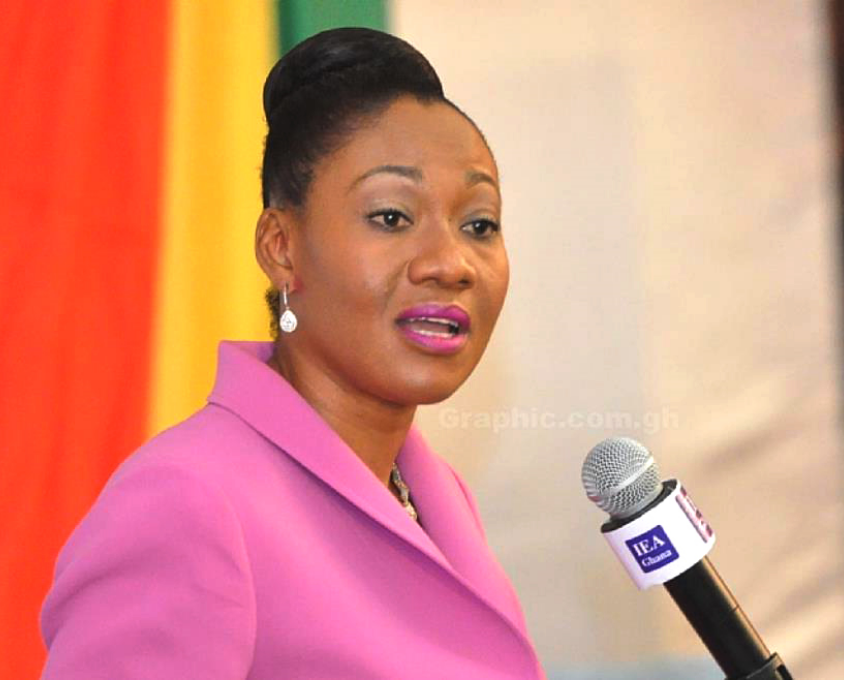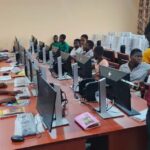The echoes of Ghana’s 2020 parliamentary election still reverberate, particularly for the people of the SALL constituency (Santrokofi, Akpafu, Lolobi, and Likpe).
Denied parliamentary representation due to a last-minute electoral directive, over 17,000 eligible voters were left in a democratic limbo. This glaring anomaly ignited a crucial conversation about electoral integrity and the very essence of citizen participation.
In response to this disenfranchisement, the President of Imam Africa has floated a profound idea: “The SALL Lectures: An annual lecture in electoral democracy.”
This initiative isn’t just about commemorating an unfortunate event; it’s a strategic and timely intervention poised to become a vital platform for democratic introspection and reform in Ghana and, indeed, across the African continent.
A Constant Reminder of Unfinished Business
At its heart, “The SALL Lectures” would serve as a powerful and perennial reminder of the SALL injustice.
By institutionalizing an annual discourse around this specific incident, it ensures that the plight of the disenfranchised voters is never forgotten. It transforms a moment of despair into a catalyst for sustained advocacy, pushing for comprehensive redress and ensuring that no Ghanaian constituency ever again faces such a denial of fundamental rights.
This continuous public engagement fosters accountability, demanding that the Electoral Commission and relevant state institutions fully address the issues that led to the SALL debacle.
Cultivating a Culture of Electoral Integrity
The SALL incident painfully exposed vulnerabilities within Ghana’s electoral system, particularly concerning boundary delimitation and the timing of critical electoral decisions.
An annual lecture series would provide a dedicated space for rigorous examination of these flaws. Experts, legal scholars, civil society organizations, and political actors could converge to dissect the intricacies of electoral law, administrative procedures, and best practices.
This collective scrutiny would be invaluable in identifying necessary reforms to prevent future disenfranchisement, ensuring clarity, transparency, and fairness in all electoral processes. It’s about building a robust system where every vote truly counts and every voice is heard.
Educating for Deeper Democratic Engagement
Beyond specific reforms, “The SALL Lectures” presents an unparalleled opportunity for broad-based civic education.
Many citizens, even in established democracies, lack a full understanding of their electoral rights and responsibilities. These lectures can demystify complex electoral processes, empower voters with knowledge, and foster a deeper appreciation for democratic principles.
An informed citizenry is the bedrock of a resilient democracy, more capable of engaging meaningfully, demanding accountability, and protecting the integrity of the ballot box.
Fostering Dialogue and National Cohesion
The disenfranchisement of SALL voters understandably sparked feelings of marginalization and anger.
An annual lecture, by bringing together diverse voices from across the political and social spectrum, can serve as a powerful forum for healing and reconciliation.
It provides a neutral ground for constructive dialogue, allowing for open discussion about grievances while simultaneously focusing on shared democratic values.
By emphasizing the importance of inclusive governance and respect for every citizen’s right to representation, the lectures can help bridge divides and strengthen the bonds of national cohesion.
A Precedent for Democratic Vigilance Across Africa
Perhaps one of the most profound impacts of “The SALL Lectures” could be its symbolic resonance beyond Ghana’s borders.
In a continent where electoral disputes and challenges to democratic norms are not uncommon, a sustained initiative born from an electoral injustice could serve as an inspiring precedent.
It sends a clear message: citizens and civil society organizations are prepared to remain vigilant, to hold power accountable, and to champion democratic principles even when faced with adversity.
It encourages a culture of democratic vigilance, inspiring similar efforts in other nations grappling with their own electoral challenges.
An Investment in Democratic Resilience
While the idea is profound, its success will hinge on sustained commitment, transparent governance, and broad support.
The “SALL Lectures” must remain non-partisan, intellectually rigorous, and accessible to all. If nurtured effectively, this annual event can evolve into a premier intellectual platform for electoral discourse in Ghana and Africa, generating critical research, informing policy, and ultimately contributing to the resilience and maturity of democratic governance.
“The SALL Lectures” is more than just a series of talks; it is a commitment to justice, a call for accountability, and a powerful investment in the future of Ghana’s democracy. It stands as a beacon, reminding us that the fight for electoral justice is a continuous journey, and that the voices of the disenfranchised must never be silenced.
Written by Raymond Ablorh, Policy, Strategy & Communication







